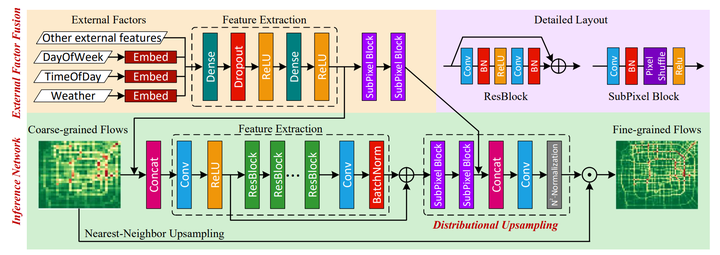
Abstract
Urban flow monitoring systems play important roles in smart city efforts around the world. However, the ubiquitous deployment of monitoring devices, such as CCTVs, induces a long-lasting and enormous cost for maintenance and operation. This suggests the need for a technology that can reduce the number of deployed devices, while preventing the degeneration of data accuracy and granularity. In this paper, we aim to infer the real-time and fine-grained crowd flows throughout a city based on coarse-grained observations. This task is challenging due to the two essential reasons: the spatial correlations between coarse- and fine-grained urban flows, and the complexities of external impacts. To tackle these issues, we develop a method entitled UrbanFM based on deep neural networks. Our model consists of two major parts: 1) an inference network to generate fine-grained flow distributions from coarse-grained inputs by using a feature extraction module and a novel distributional upsampling module; 2) a general fusion subnet to further boost the performance by considering the influences of different external factors. Extensive experiments on two real-world datasets, namely TaxiBJ and HappyValley, validate the effectiveness and efficiency of our method compared to seven baselines, demonstrating the state-of-the-art performance of our approach on the fine-grained urban flow inference problem.